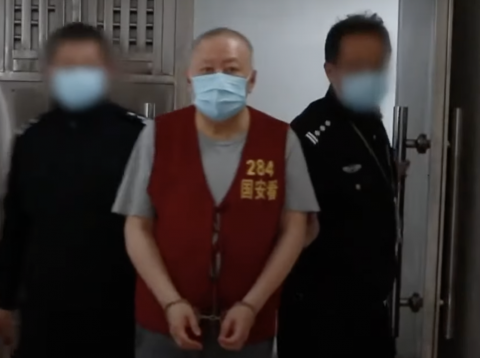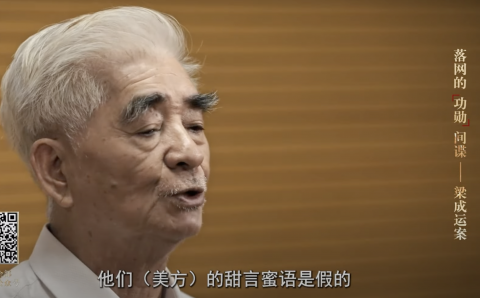10 ‘spy’ cases China’s MSS wants you to know about

To mark the occasion, China’s Ministry of State Security (MSS) posted a half-hour video on their official WeChat channel titled "Innovation Leads · Forging the Sword of National Security". WeChat is China’s dominant social media app. Chinese and foreign media also covered the program’s release.
The MSS only opened their WeChat channel in summer 2023, just weeks after an amended counter-espionage law came into force. The revised law significantly expanded the scope of activities that fall under espionage, and is also focused on getting the public to report cases.
Forging the Sword of National Security employs the usual bombastic, Chinese flag-waving trope familiar to viewers of state TV. It’s also part of a campaign aimed at reinforcing a strong distrust of foreigners long fostered under Xi Jinping. The quality is mediocre: footage is mostly stock images, bad reenactments, and a few clips of the detainees shuffling along in chains or handcuffs.
The top 10 counterespionage cases of the past decade covered in this feature involve several foreigners: four Canadians, an American, one Taiwanese, a Belizean and US consulting firm Capvision. Six individuals, who make up the remaining cases, appear to be Chinese nationals.

Next up, were Canadians Michael Kovrig and Michael Spavor. Their case is one of the few that did not include video of them in custody, which of course the MSS must have. Interrogations are routinely filmed in China.
It is widely considered that the two men were victims of China’s hostage diplomacy after Canada detained Meng Wanzhou, a top executive at Chinese telecoms giant Huawei in 2018 on an extradition request from Washington. The two men were released hours after Meng was allowed to go home to China more than two and a half years later in 2021.
Few details of their “espionage crimes” are given, but their release in 2021 is explained on “health grounds”.

He is filmed saying: “I’m full of remorse. I wish to tell all overseas Chinese and Chinese people that the [US’] sweet words are lies.” Leung was accused of spying for the Americans for three decades, including with the use of “honeytraps” on Chinese officials visiting the US in an attempt to get them to defect.
Leung was sentenced to life in prison in 2023.
Apparently, the program also revealed for the first time that Chinese national Huang Yu, who was known to have been imprisoned for spying, had been executed in 2016 just one month after he was convicted. China considers information on its death penalty a state secret.
The segment begins with footage of a shackled Yu. A voice off camera asks “What crime did you commit?”
“I was a spy,” a man, presumably Yu, replies.
“What sentence did you get?”
“Death,” he responds.
At the end of the segment, the narrator says that Yu was executed in May 2016.
Others featured in Forging the Sword of National Security include Taiwanese researcher Cheng Yu-chin, whose forced TV confession was broadcast several years ago, and Canadian couple Peter Wang and Ruqin Zhao who were arrested in 2017 when they returned to China to visit relatives. The couple should both have been released from prison by now as they were given sentences of three or less years, but their current whereabouts are unknown.
Safeguard Defenders began its campaign against China's forced TV confessions on exported state TV stations CGTN and CCTV-4 in 2018 with the launch of a ground-breaking report Scripted and Staged: Behind the Scenes of China's Forced TV Confessions.

